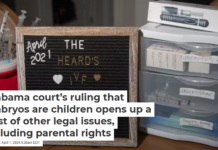
Sarah L. Cook, Georgia State University
Reporter Paula Froelich claims she once observed Harvey Weinstein assault a woman at a book party. Her editor responded with, “Maybe it’s not really a story.”
As it turns out, Weinstein and others are becoming a never-ending story, as more women reveal experiences with powerful men – not just in Hollywood, but across multiple industries. This story typically has two acts. First come the women’s reports – followed by the inevitable dismissal and undermining of them.
As a scholar who has studied violence against women for more than 20 years and watched public outrage over harassment and assault wax and wane, my question is: Could this time be different?
Of course, the volume of reports is new. Never before have we witnessed such an outpouring. It’s also new to see organizations such as the newsroom at NPR or the Academy of Motion Picture Artists hold leadership accountable for failing to act.
But other aspects of this cultural moment are all too familiar. Already, the act of making a report of harassment or assault has been termed “Weinsteining,” and the collective action of women who have done the reporting has been termed the “Weinstein effect.” The use of these terms removes the women from the stories, and maintains a narrow focus on a singular perpetrator.
These cutesy terms also diminish the agony women face when deciding whether to make a formal complaint to an authority. Those who have been victimized report fear of reprisal or of being disbelieved, and feel shame, guilt and embarrassment. These fears and reactions are evident across women’s recent accounts. Many spoke of years of torment, fear, shame and guilt, including physical reactions like nausea when recalling the event.
Let me be clear. Such fears are rational. Though some actors allegedly victimized by Weinstein or James Toback continued in the industry and found success, many others were excluded from major films, and a good number left the industry entirely. Other women were encouraged to sign agreements that effectively stopped them from telling their own stories.
Another way of undermining women’s reports is to downgrade the women’s experiences from the categories of harassment, sexual assault and rape and instead label them abuse, minor bad behavior or innocent miscommunication. For example, the claim that Toback engaged in “low-level lechery” and not sexual assault is absurd. What Toback has been accused of – obtaining sexual stimulation or orgasm by rubbing against a person without the person’s consent – is a crime called frotteurism.
No woman is immune
The victimization of powerful celebrities shows that no woman is immune.
Years of social science data underscore the pervasiveness of sexual violation in women’s lives. The sad truth is that the number of women who have been raped or assaulted in their lifetime has not decreased during the past 30 years, or longer.
An analysis of different studies of women in academia, government, the private sector and the military – representing 86,000 women in all – documented that 58 percent said they had experienced at least one instance of sexually harassing behavior. Recently, researchers at the University of Oregon were surprised to find that nearly 60 percent of women graduate students reported experiences of sexual harassment. In 2010 the Centers for Disease Control and Prevention estimated that 20 percent of American women overall have experienced rape. Estimates of rape and attempted rape in higher education students has remained at a steady 20 percent since psychologist Mary Koss’s 1987 groundbreaking study.
If we look at Hollywood as a microcosm of society, men like Weinstein and Toback effectively exerted a pattern of intimidation, fear and social control through sexual predation. As author Susan Brownmiller wrote in her classic 1975 book, “Against Our Will,” the behavior of these men isn’t about sex – it’s about intimidation, fear and social control.
![]() Diminishing and undermining the process of women bravely reporting experiences of sexual harassment, rape and other forms of sexual assault by calling it “Weinsteining” allows predators to hold onto power. Describing women’s real experiences with words that match the horror they faced is a first step toward dismantling that power and the structures that support it. If more women come forward and name their experiences and others remember that bad manners, assault and harassment are not synonymous, this time may be different. I’m hopeful; but only time will tell.
Diminishing and undermining the process of women bravely reporting experiences of sexual harassment, rape and other forms of sexual assault by calling it “Weinsteining” allows predators to hold onto power. Describing women’s real experiences with words that match the horror they faced is a first step toward dismantling that power and the structures that support it. If more women come forward and name their experiences and others remember that bad manners, assault and harassment are not synonymous, this time may be different. I’m hopeful; but only time will tell.
Sarah L. Cook, Professor & Associate Dean, Georgia State University
This article was originally published on The Conversation. Read the original article.




















